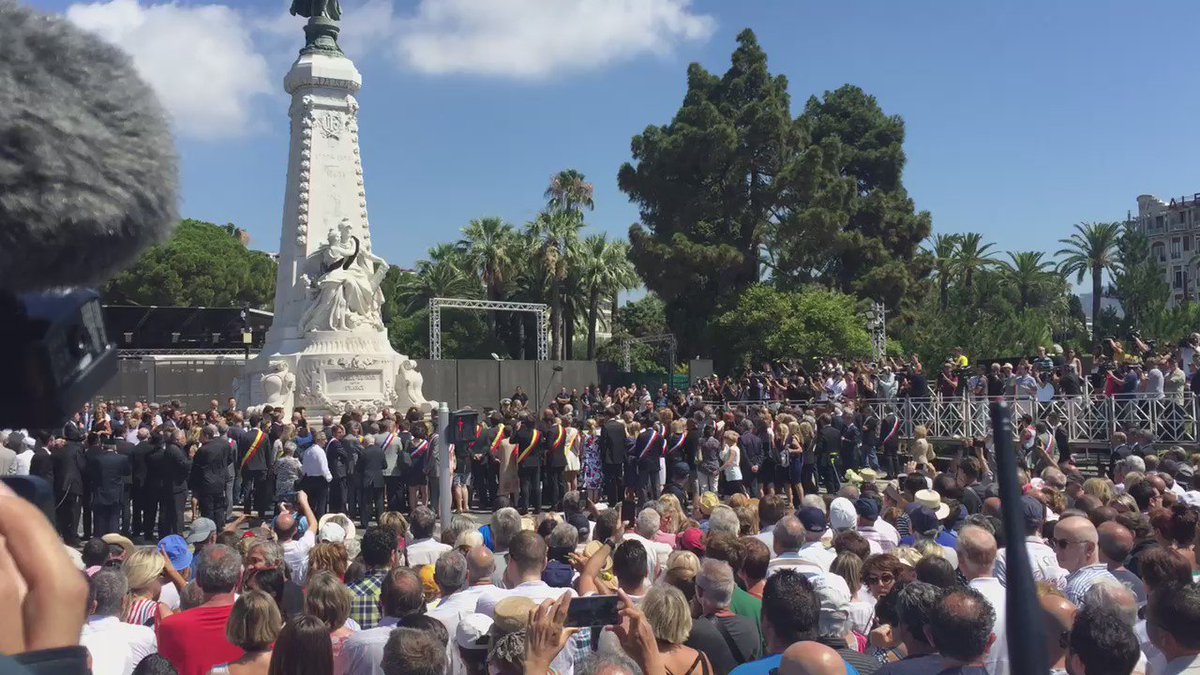Nice massacre: Sign French society has broken down?
Bryan MacDonald is an Irish journalist, who is based in Russia
After Thursday's horrific attack, the French resort town of Nice remains on edge. Meanwhile, there is a consensus that France finally needs to recognize its mistakes in properly integrating its immigrant populations.
L’Ariane is not the type of neighborhood you visit in a shirt and tie. Instead, an Ireland soccer shirt seems safer attire and it quickly draws the attention of Ahmed. Born in France, to Lebanese parents, he has a connection to Ireland through a cousin living in Dublin.
“I know all about your country,” he says. “It is truly a wonderful place. My cousin moved there because his wife, who is Syrian, couldn’t live with these racists here in France. She wears the scarf (gesturing to his head) and these people don’t want this. Your people are more tolerant.”
Warming to his theme, Ahmed contends that the horror of Thursday night’s Nice outrage and the terror attacks of the past year in France can all be traced back to wider social problems. Especially, what he perceives as, the failure of successive French governments, and civil society, to properly integrate the country’s Muslim population.
“You treat your Muslims well in Ireland. So do the Germans and the Swedish too, as I have heard. That’s why you will never have these kinds of disaffected guys. They have no hope and no future and that’s the reason they strike out at everyone, whether through jihad or random violence,” he explains. “France has a mentality of ‘we are we and you are them,’ always the outsider. This land is sick.”
Chilling or Positive?
There are two ways of interpreting Ahmed’s words. You can accept them at face value and be grateful other countries are happily pursuing the correct direction or you can look at it another way. The flip side of Ahmed's thoughts is that they are also a chilling warning for what might happen in Dublin or Berlin if national governments eventually pursued strongly secular policies as France has done. The road from banning religious symbols in public institutions to this sort of civil disorder may be shorter than most imagine.
All cities have a certain amount of inequality. In London, for instance, the mansions of Chelsea and Knightsbridge are not far from areas of genuine deprivation. But nobody does this contrast quite like the French. There are ghettoes and then there is this Nice suburb of L’Ariane. Think of crumbling apartment blocks in poor post-Soviet states like Ukraine or Moldova, with Burkhas.
In most Western countries, folk like to believe that a commitment to, at least nominally, free education and the relatively generous social welfare systems give every young person at least some chance at success if they apply themselves. This is not the case in France. If someone is raised in a poor banlieue, the name for low-income housing projects here, they are likely to die in one too. As most Arab immigrants to France live in such zones, this fuels their alienation from mainstream society.
Upstairs, Downstairs
In central Nice, it’s another world. Confirming the impression that while this may be one city, it has two orbits. Last night, a black, Luxembourg-registered Ferrari revved up in front of a Porsche Cayenne with Russian plates outside Ma Nolan’s Irish pub. The hostelry, about 700 meters from where Thursday's attacker eventually died, was relatively quiet at the weekend, like the rest of the city center.
That's no surprise because the police presence is overbearing. Even in outlying districts, armed officers stand guard at seemingly every entrance to a street containing bars or restaurants.
Presumably, this is to prevent copy-cat attacks where car or truck drivers could plough through outside seated areas. While locals wear haunted looks and exhibit fearful demeanors, revelers in Nice this weekend are perhaps a little more blasé.
Inside the pub, Paul McCarthy, a chef from Newry, Ireland who works in nearby Cannes, is listening to Trad music. He doesn’t feel France is now an especially dangerous country. “I’m not afraid. The poor people who died were just in the wrong place at the wrong time, sadly. I think this region is a wonderful place,” he muses. “Anyway, I grew up in Northern Ireland during the troubles; it’s not quite on that scale yet.”
A Russian customer, Artyom Ponomarenko, who lives in Perm, takes another view. "I don't know the exact statistic but I believe 20 percent of Russia is Muslim (it's actually closer to 7 percent) and we've been down this same road as France already," he insists. "When I was growing up there were terror attacks almost every week, including the famous ones like Beslan and the Moscow theatre."
"Today, these have mostly stopped, because of strong leadership and effective policing. It appears to me that the French government’s reaction has been weak. Perhaps they need to visit Russia and talk to President Putin about how he successfully reduced the problems caused by militant Islamism," Artyom suggests.
Outside, Irish students Sarah and David are having a beer on the terrace. They’ve been employed on the Cote D’Azur since May, but now they want to go home. “Mind you, it's not because of the attack, we just think it’s boring here. Galway, where we study, is better craic (Irish for fun),” David says.
It's hard to argue with that sentiment, especially right now.
The statements, views and opinions expressed in this column are solely those of the author
and do not necessarily represent those of RT.
https://www.rt.com/op-edge/351831-nice-france-sick-attack/




0 Comments:
Post a Comment
Subscribe to Post Comments [Atom]
<< Home